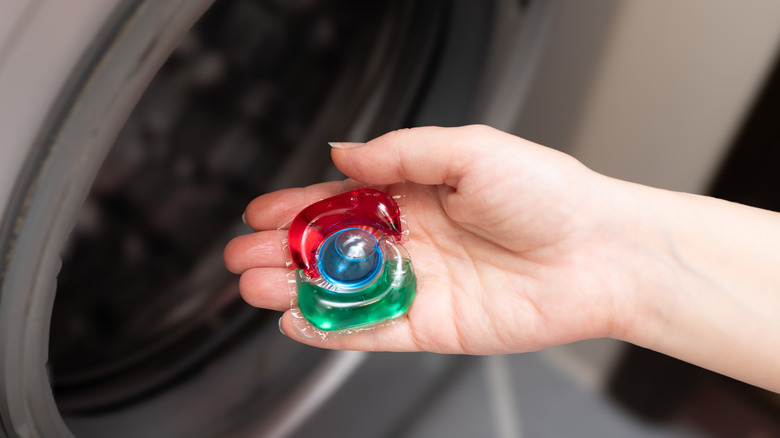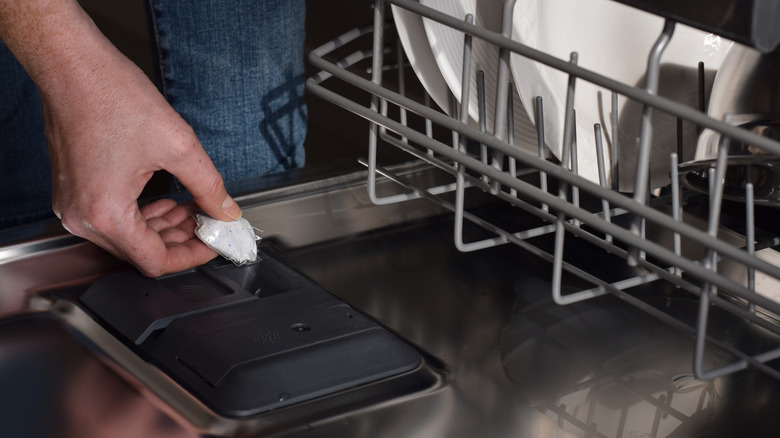Are Dishwasher And Laundry Pods Toxic? Here's What The Science Says
Doing laundry and washing dishes has never been easier. While you might have machines at home to do most of this work for you, detergent pods made for each appliance also save you from having to mess with the liquid or powdered products. You simply add the pod to the dispenser and run the appliance to clean dishes and clothing. Like other modern-day luxuries though, these detergent pods come at a cost. Not only are they not as budget friendly as the liquid versions, but some people are also concerned about the plastics they contain. Microplastics are literally everywhere, and their toxicity and long-term impacts on health are still being studied, so it's understandable if you'd like to ditch common plastic kitchen items for safer alternatives. However, you'll be relieved to know that the U.S. Environmental Protection Agency (EPA) and most researchers say that the plastics in these pods are not toxic or otherwise harmful to human health.
Detergent pods are encased in a type of plastic called polyvinyl alcohol (PVA). Unlike microplastics and the insoluble PVA used in textiles and other materials, the PVA in detergent pods is designed to dissolve in water when you run the washing machine or dishwasher. This PVA-containing water then makes its way to your local water treatment facility where microbes break these substances down.
What science says about PVA in dishwasher and laundry pods
The PVA in detergent pods liquifies entirely upon contact with water. The resulting liquid is different from microplastics, which are pieces of solid plastic debris measuring 5 millimeters or smaller in length. When you run your dishwasher or washing machine, the PVA drains with the water, and many experts argue that since it doesn't stay behind or stick to surfaces, it shouldn't pose any toxicity risks.
While detergent pod plastics may not stick around to harm you at home, questions remain about the effectiveness of waste treatments for PVA-containing water. Some experts are raising the alarm that treated wastewater might still have PVA, and there's a chance that some of these molecules may end up in our waterways. Nevertheless, current research suggests that PVA from detergent pods cannot build up in the human body the way microplastics do.
The omnipresence of plastics is definitely worth being concerned about. It's certainly a good reason to ditch the plastic wrap and other unnecessary sources of plastic. And while the PVA used in detergent pods isn't known to be harmful to health, if you have concerns about its safety, you always have the option of using liquid or powder detergent instead of the pods.

